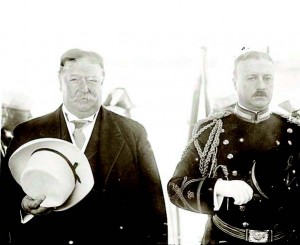CLIFF DUNN, EDITOR
I had occasion this week to see an old friend who I haven’t seen in nearly 20 years. On his first trip back to Fort Lauderdale since the early-90s, my friend and I played catch-up on subjects long forgotten—including his shortlived relationship (little-recalled, on my part) with a former Member of Congress, disgraced these several years past in an underage “sexting” scandal that ended a very promising national political career.
When we started speculating about what could have been going on in the mind of Congressman— let’s call him “Y” (referring to both his hyper-sexed male-genderdetermining chromosome, and, more obliquely, to the question, “WHY the HELL didn’t you stop yourself when you knew there was a problem?”)—the content of his messages, naturally enough, spurred our most prurient curiosity, and we commenced to Google bicoastally, mind you the shameful record.
I won’t get into the specifics of what he texted, or to whom he texted it, but the tone of the language he used set off a wild flurry of responses in me, both emotional and intellectual.
I was horrified for the victims who were subjected to the id-driven fantasies of what was clearly a man who had spun out-of-control. How else to justify, intellectually, at least, coy questions about what the recipient was wearing, how good he must look in it, etc., etc., ad nauseum. The fact that I knew the disgraced public servant from my years as a radio talk show host—and that I liked him personally—added to my cognitive dissonance.
I had shared cigars with him, for crying out loud! But those conversations over Macanudos took on a more sinister tone, when I recalled our “girlish” comments about how good soand- so looked in short-shorts (which my lawmaker acquaintance had the occasion to witness; in this case, “so-and-so” is another contemporary and current figure, well-recognized in political circles).
I’m not saying that boyswon’t- be-boys; good luck changing that, whether the boys in question be gay or straight. But this kind of risky behavior goes well beyond anything towards which most people are willing to turn a blind eye.
It speaks of a want of prudence and the qualities of selfpreservation that are required to live as a member of society, even for those whom we know ,and of whom we are inclined to be tolerant. The ongoing case of former TV personality Rob Lopicola is another example of this, although not all the facts have been revealed, and Lopicola deserves the benefit of both the human and the legal doubt.
I knew Rob socially, from Sunday afternoon T-Dance at the late Voodoo Lounge in Fort Lauderdale, and cannot reconcile what I have read in police and court records (including the text messages sent to one of the alleged victims, a 15-year-old boy), with the person I ran into on occasion, more recently, at the nightclub which employed him.
Because I have no window into his mind, soul, or psyche, there’s no way for me to make more than an educated guess, based upon what I know of compulsive behavior, as to what possibly drove him (if he is, in fact, responsible for that which he is charged) or for that matter anyone who is reputed to have abandoned reason and the finer niceties of the “social contract.” Sadly, one doesn’t need to look far afield to see that our tolerant environment masks less benevolent undercurrents.
When something like this occurs, there are two victims: The youth who is involved, certainly, but also the reputed perpetrator, who gives in to what I can only see as a “hunger,” one that is often to be seen in the haunts and spaces of our beautiful burg.
The now-viral images of two participants on one of the Stonewall Summer Pride floats doesn’t depict anything that many of us haven’t seen (and, in some cases, done). The difference is that most of us haven’t done it in broad daylight, on a parade float, in front of children.
Don’t these people have friends, family, or a support system to tell them when they’ve gone too far? I love the fact that we live in a tolerant, easy-going place, where the sight of two men walking hand in hand, or cuddling, or kissing, is the rule, rather than the exception.
Each of us has to be accountable for what we do, and, more fundamentally, what we allow ourselves to give into, and become. We no longer have to fight for our right to exercise our inner Pleasure Principle.
The challenge for us as adults—ruled by reason, cause, and consequence—is to give in to a healthy dose of reality when it is needed most.












